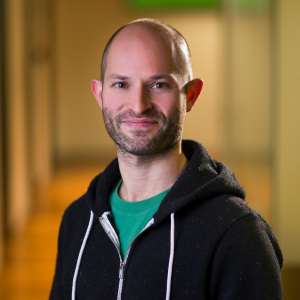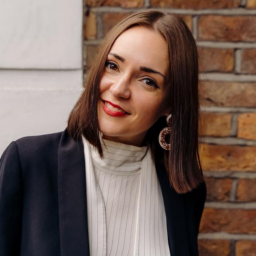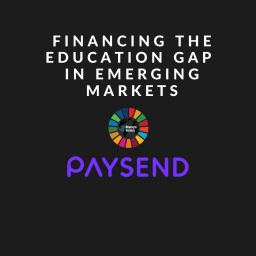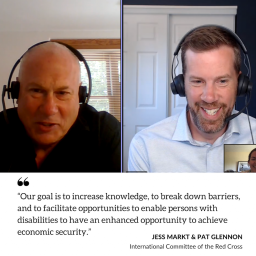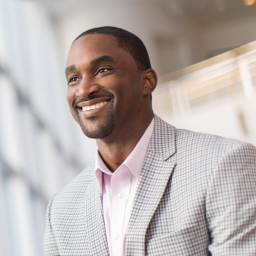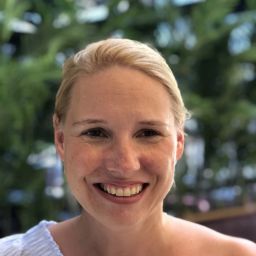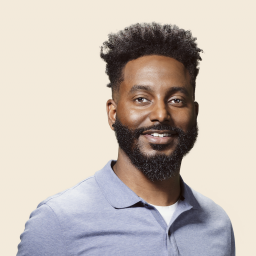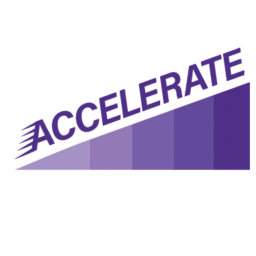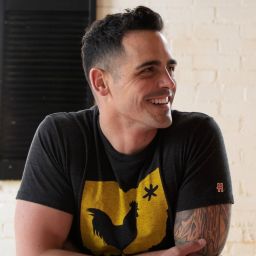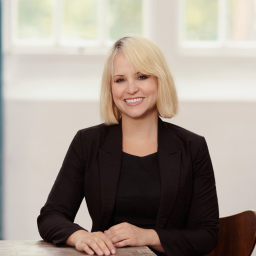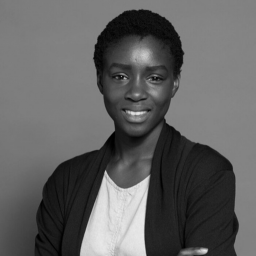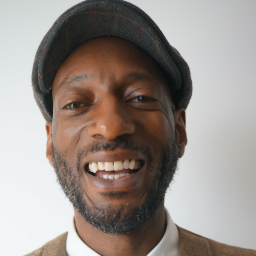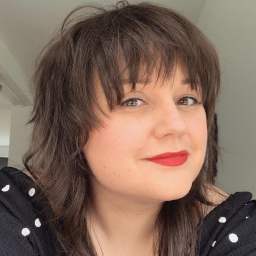What does it mean to be an entrepreneur?
To be called an entrepreneur, you have to pass two tests. First, you must have started more than one business, and my preference is more than two to prove you are more than just a great business person. The second is that there must be some level of personal financial risk. This means not being reliant on venture seed money or other funding. If you’re not personally liable, you may have entrepreneurial spirit, but you’re not an entrepreneur.
How did you get started as an entrepreneur?
When I left school, I was registered blind but I still had sight. I landed a job in IT and had a fabulous career, eventually becoming Vice-President of Research and Development for Nokia in Finland. When my sight began to deteriorate, I couldn’t give the job 110% so I resigned and came back to the UK to try something new.
I expected that getting a new job would be straightforward. While going in and out of London for job interviews, the vending machine never had my favourite chocolate bar, a Cadbury’s Boost. So, when job rejection followed job rejection, I decided to start my first business in the vending machine market.
How has your experience as a disabled person helped you?
Virtually everything I’ve done has been an evolution of an existing product or service. And I think that’s tied to disability. I touch things, investigate them, and analyse them. I’m very tactile with what’s in front of me – not just physically, but metaphorically as well. I always ask, “Why are we doing it like this?” and “How can we do it differently.”
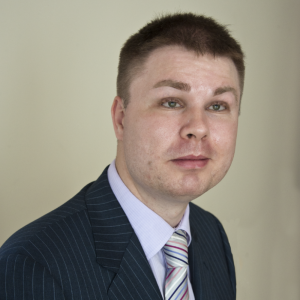
Neil Barnfather MBE, VP UK & Ireland, GoodMaps
Disabled people have to be entrepreneurial going about their everyday lives. Naturally, some will make good entrepreneurs but this is something we are only just hearing about. Are disabled entrepreneurs a recent development?
Absolutely not. Richard Branson has chronic dyslexia and he started his first business in the 1960s. If you think back, it is only relatively recently we have had disability employment rights. So, before then, disabled people would have had to be entrepreneurial to earn a living. We see this in low and middle-income countries, where there is still no legislation to ensure disabled people have access to employment opportunities.
To me, an entrepreneur is someone who abstractly thinks outside the box with regards to a particular problem. That might be a business problem, but it could also apply to academia. When you think of it that way, by today’s standards, some of the greatest scientists would have been considered neurodiverse. They’re examples of an entrepreneurial mindset going back centuries.
What skills have been invaluable to you as an entrepreneur?
Tenacity, boundless curiosity and a desire to continuously challenge convention are part of my personality, which is strongly interconnected with my being disabled.
I don’t have a way of accessing a lot of what’s going on around me. So, I’m very curious. What just happened? Why did it happen? I’m constantly going to ask those questions. What’s just occurred that sighted people take for granted?
I like to challenge conventions, which is how I found myself setting up many of my businesses. And the bonus has been that I have proved a point about being visually disabled. No-one would have expected a guy who’s registered blind to have gone on and done what I’ve done.
But what I consider one of my signature traits is that I’m MAD – Meticulous Attention to Detail. Everything in my life has to be organised and well structured, which is incredibly important when creating a business and in the execution of entrepreneurial endeavour.
How did you get to starting 19 businesses?
I like finessing things to be the best they can be. I dream up the vision – what it’s going to look like, what it’s going to do and how it’s going to function. I then find the people who can convert my dream into reality. Once the business is successful, or at a point where it’s successful enough on paper that someone offers to buy it, I sell it.
Before starting any of my businesses, I approached incumbents in the sector and said, “Hey, can I help you to make this better?” And they told me to go away. And in 14 of my businesses, I’ve sold back to those people for more than they would have paid to employ me in the first place. I have heard, “Go away, young man who’s blind. You don’t know what you’re talking about,” a lot. And then, they’ve had to eat their words. And in the other cases, I’ve sold to their competitors.
What are the skills you’ve learnt?
Resiliency is something that I’ve had to learn. There have been a lot of setbacks, as well as people doubting my capabilities and capacity. Managing that and staying focused was a huge learning curve for me. And I’ve had to develop my sense of humour. Most successful disabled people I meet tend to have a wonderful sense of humour. I think that’s a tool that we use to engage with the wider community.
Interpreting the sound of body language in a business setting has also been invaluable. I use audible cues to interpret people’s attitudes, moods and reactions. In meeting rooms, I can now pick up on people’s breathing to judge if they are interested and attentive. I’ve used that a million times over to sell to people. When I’m in a room and I can tell I’m on the wrong track, I change tack.
What advice would you give to disabled people who want to become entrepreneurs?
Go for it!
You’ve already got everything you need to succeed. If you’ve made it this far, with your disability in tow, then you have the creativity, resourcefulness and tenacity to succeed. You are used to being innovative and creative. Now, it’s just about redeploying the skills.
Disabled people are probably 10 steps ahead, if not more, than 95% of the UK or global population who are considering entrepreneurship. It’s one of the few times where disability may be a blessing in disguise.
I would also say:
- Don’t worry. There are lots of mentoring groups out there and help is available from people like me.
- Take your time and don’t expect overnight success. Sense check your ideas and business plan with people, make sure it feels right.
End.
For more reflections and business advice from Neil, head to his blog and check out his article on entrepreneurialism.
___
TO JOIN THE ‘Accelerate’ COMMUNITY of leaders championing disability inclusion globally, APPLY TO BECOME A MEMBER OF MEANINGFUL BUSINESS HERE


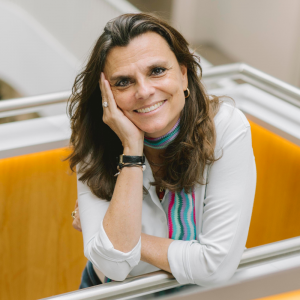
![Introducing Accelerate - Working Together for Disability Inclusion Accelerate_social_tile_1d[4]](https://meaningful.business/wp-content/uploads/2021/03/Accelerate_social_tile_1d4-300x300.png)
